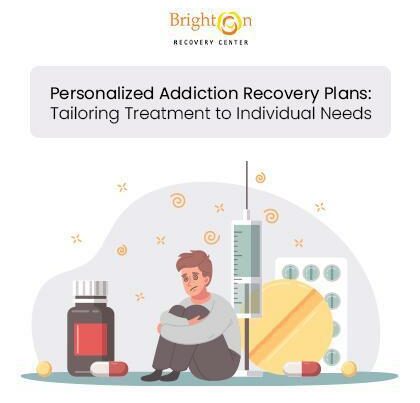Holistic Approaches to Substance Abuse Rehabilitation: Nurturing Mind, Body, and Spirit
Introduction:
The journey to recovery from substance abuse is a complex and deeply personal process. A growing number of drug usage rehabilitation programs are using holistic approaches, which acknowledge the connection between the mind, body, and spirit. We’ll look at different aspects of holistic rehabilitation in this blog post, including how it treats the root causes of addiction in addition to its symptoms. Understanding Holistic Rehabilitation:
Understanding Holistic Rehabilitation:
Holistic rehabilitation views individuals as whole beings, considering both their physical and emotional health, as well as their mental and spiritual wellness. It’s different from usual strategies that may only put attention on symptoms. Holistic approaches delve deeper, addressing the root causes of addiction, aiming to restore balance and harmony in all facets of life.
Mind-Body Connection:
Holistic approaches emphasize the profound connection between the mind and body. Health-promoting practices like yoga, meditation, and mindfulness exercises are a part of healing frameworks. They push for self-reflection and emotional regulation. These practices alleviate stress and help individuals develop healthier coping mechanisms.
Nutritional and Physical Wellness:
Proper nutrition and physical well-being play a vital role in holistic recovery. Substance abuse often causes harm to the body, resulting in nutritional deficiencies and overall health deterioration. Holistic programs incorporate healthy meals, workout plans, and other wellness activities to support the body’s healing process and enhance overall vitality.
Psychotherapy and Counseling:
Holistic approaches focus not only on the body, but on a person’s mental and emotional well-being. Psychotherapy and counseling sessions are tailored to address the unique psychological challenges individuals face during recovery. Therapists use different methods like Cognitive Behavioral Therapy (CBT) and Dialectical Behavioral Therapy (DBT), to help improve self-awareness and promote positive behavior patterns.
Spiritual Exploration:
Holistic recovery approaches recognize the importance of spirituality in healing, regardless of religious ties. Individuals are encouraged to delve into their spiritual ideologies and practices, whether through traditional religious structures, consciousness, or connecting with nature. This spiritual exploration offers a sense of purpose and connection beyond the immediate challenges of addiction.
Alternative Therapies:
Holistic techniques often use extra therapies alongside typical treatments, such as art therapy, music therapy, and horse therapy. These open unique paths for showing feelings, freeing emotions, and improving the individual. These creative paths help people link to their inner selves beyond just using words.
Acupuncture and Holistic Healing Practices:
Holistic healing may use needle therapy and other alternative healing methods from Eastern cultures. These methods work to restore energy balance within the body, minimize physical pain, and boost overall health. By focusing on both the physical and mental aspects of addiction, individuals can experience a more comprehensive healing process.
 Community and Support Networks:
Community and Support Networks:
Understanding the value of social ties, holistic rehabilitation programs foster a sense of community. Peer assistance, family therapy, and community-building activities help form a solid support system. Making connections with people who have had similar experiences provides encouragement and a sense of belonging.
Educational Components:
Holistic approaches often include educational elements that empower people with knowledge on addiction, mental health, and coping mechanisms. Having a solid understanding of the science underlying addiction and obtaining useful relapse prevention tools helps people make well-informed decisions regarding their recovery process.
Life Skills Training:
Holistic therapy goes beyond the initial stage of healing, emphasizing the development of life skills. This includes skills like money management, stress management, and communication skills. This helps people better prepare to deal with life’s obstacles without abusing drugs.
Conclusion:
Taking the holistic approach to fighting substance abuse offers a transformative and integrative path to recovery. People undergoing therapy can recover more deeply and profoundly if the interrelated aspects of mind, body, and spirit are addressed. The holistic path sees each journey as one-of-a-kind. It calls for a complete plan tuned to each person. This plan helps them improve, bounce back, and find new purpose. As the field of addiction treatment continues to evolve, holistic approaches stand at the forefront, providing individuals with a holistic toolkit to reclaim their lives and embark on a journey of lasting well-being.



